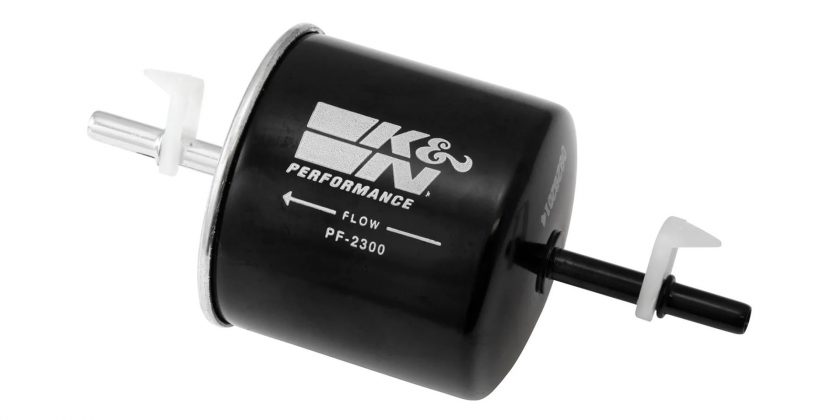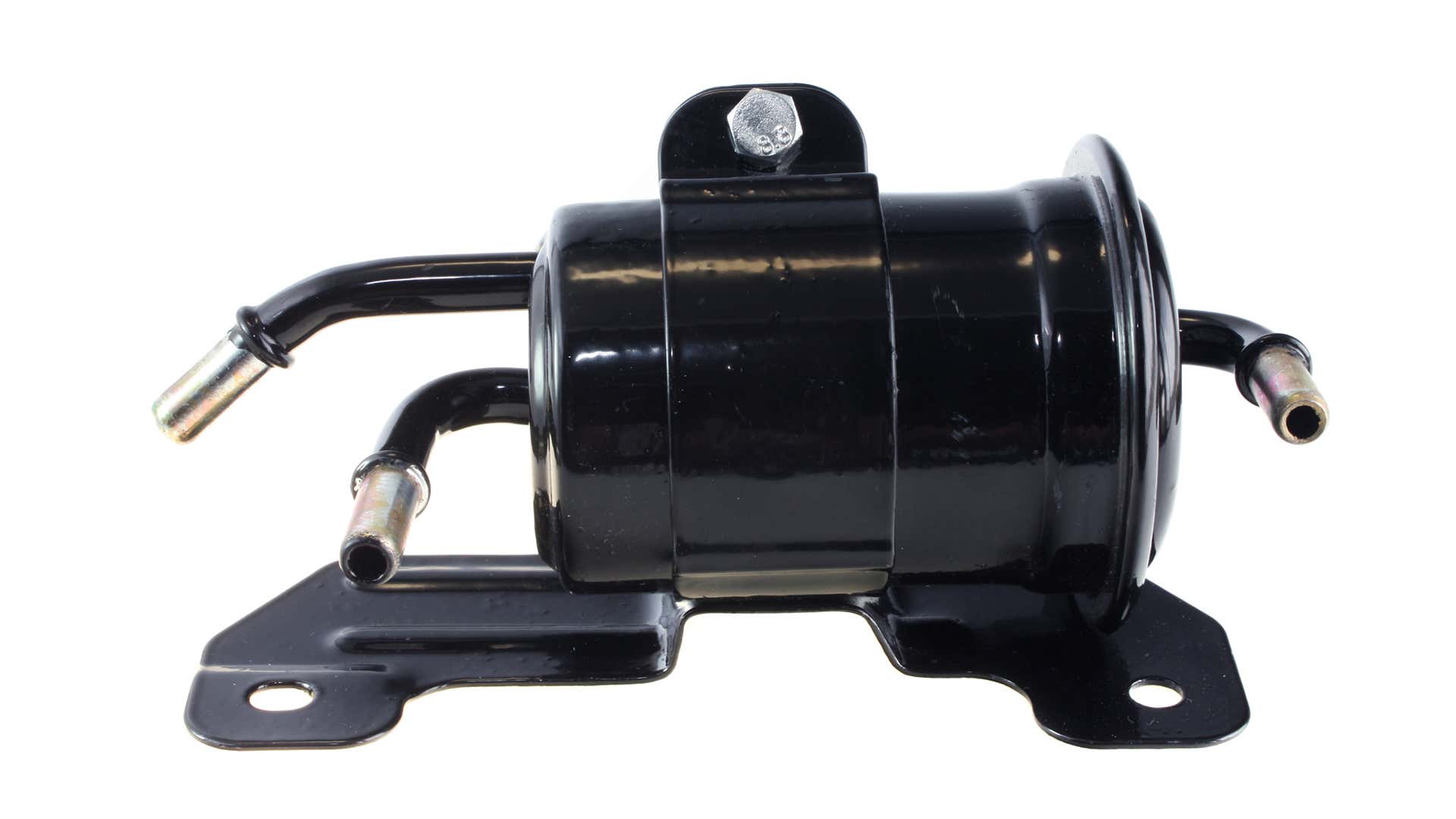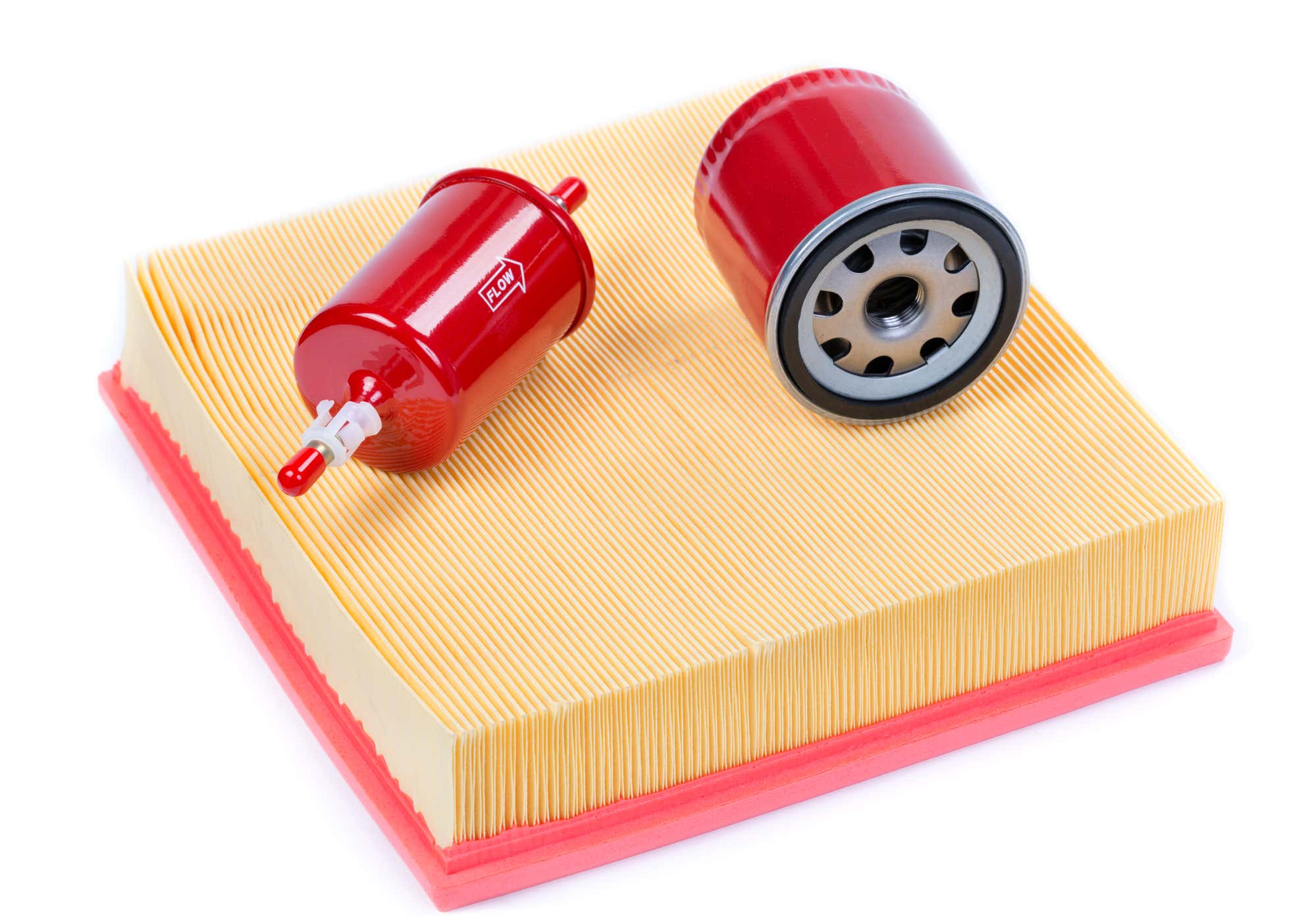The Drive and its partners may earn a commission if you purchase a product through one of our links. Read more.
When you’re on the go, your car’s engine is sucking in fuel like Takeru Kobayashi inhaling a platter of hot dogs. Handling that heavy load, your fuel pump sends fuel from the gas tank to the engine. Along the way, the fuel goes through a filter.
Like all filters, fuel filters can become clogged due to successfully accomplishing its duty for an extended period of time. The longer a filter is in action, the more particles it will catch, until the point that it can catch no more. When this occurs, it could interrupt fuel delivery, and your engine could starve and die.
To prevent your car from dying on a random highway, it’s important to recognize early onset symptoms that suggest something could be wrong. The Drive’s info team wants to help with that, so we’ve gathered a guide to clogged fuel filters. Dig in.
What Is a Fuel Filter and What Does It Do?
A fuel filter is a device within a car’s fuel system that traps unwanted debris as the fuel passes through it. It is typically made of a metal or plastic casing and contains varying material designed to catch unwanted contaminants floating around in the fuel. By doing so, it protects the engine and fuel injectors from harmful particulates.
Types of Fuel Filters
A fuel filter will be located somewhere in between the gas tank and the engine, here are some helpful hints for finding it.
Location
- Inline: On certain vehicles, commonly on vehicles with return-type fuel systems, the filter is literally in between two fuel hose connections, thus it is inline with the fuel system.
- Tank: On some vehicles, often vehicles with returnless fuel systems, the fuel filter is on or inside of the fuel tank.
Connections
- Push-On: Most filters will feature small protruding tubes that slide into the fuel line hoses, sometimes secured by clamps. This is the most common type of fuel filter.
- Threaded: Some filters might feature threads on the input and output tubes to screw it in place.
Fuel filters are available in different designs.
Symptoms of a Clogged Fuel Filter Symptoms
If you have a clogged fuel filter, the engine might not be getting enough fuel, which could cause a lot of issues. If you notice these symptoms, it could be the result of an old, dirty, and/or blocked-up filter. Do note, these symptoms could also be the result of a bad fuel pump or a different cause.
Difficulty Starting
Your engine needs fuel to start up. If the filter is clogged, and no fuel can be delivered, it might not start.
Sputtering
If you start your car, and it sounds like it’s an asthmatic howler monkey during idle, it might not be getting the proper levels of fuel to idle in at a consistent RPM.
Inconsistent Acceleration
Every time you jab your go pedal, fuel is rushed to the engine. If the amount reaching the block is insufficient, it could be the result of a clogged fuel filter.
Irregularly High Engine Temperature
If the normal combustion cycle is off balance due to a lack of fuel, the engine might overwork or overstress itself, which could lead to unhealthy high temps.
Drop in Fuel Efficiency
If your engine is not getting enough fuel, the stress that causes could result in less efficient fuel usage.
How Long Do Fuel Filters Last?
In general, it’s recommended to replace, or at least check, your filter roughly every 30,000 miles. Some manufacturers recommend longer, others recommend shorter, so it’s best to check your owner’s manual for instructions.
How To Check and Replace a Fuel Filter
For more information about the fuel filter replacement process, read The Drive’s guide, How To Change Your Fuel Filter.
A car uses filters for air, fuel, and oil, among other things.
Get Mobile Automotive Service and Repair with YourMechanic
While The Drive’s how-to guides are detailed and easy to follow, no vehicle is created the same, and not all auto maintenance or repair tasks are easy to accomplish on your own. That’s why we’ve partnered with YourMechanic and their network of mobile automotive technicians to offer our readers $10 off a $70+ service call when you use promo code THEDRIVE.
FAQs About Checking a Clogged Fuel Filter
You’ve got questions, The Drive has answers!
Q. Can You Drive With a Blocked Fuel Filter?
A. Can you? Maybe, but we don’t recommend it. Without the necessary fuel it’s expecting, the engine could be damaged or malfunction. Service the problem as soon as possible.
Q. How Do You Unclog a Fuel Filter?
A. The most common types of fuel filters use cheap materials such as paper as the literal filtering membrane, so it’s best to replace these rather than attempt to clean them. If you have a reusable metal filter, it needs to be cleaned.
Q. How Much Does It Cost To Fix a Clogged Fuel Filter?
A. For just the part itself, fuel filters can range from $10-150. Additional professional labor costs could add another hundred or two, depending on the location of the filter.
Let’s Talk, Comment Below To Talk With The Drive’s Editors!
We’re here to be expert guides in everything How-To related. Use us, compliment us, yell at us. Comment below and let’s talk! You can also shout at us on Twitter or Instagram, here are our profiles.
Jonathon Klein: Twitter (@jonathon.klein), Instagram (@jonathon_klein)
Tony Markovich: Twitter (@T_Marko), Instagram (@t_marko)
Chris Teague: Twitter (@TeagueDrives), Instagram (@TeagueDrives)
Featured Products
Motorcraft Fuel Filter
ACDelco Professional Fuel Filter
TopScope Fuel Pump
Got a question? Got a pro tip? Send us a note: [email protected]
Source: Read Full Article


